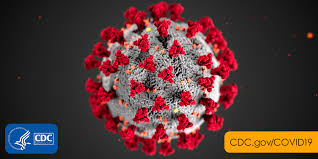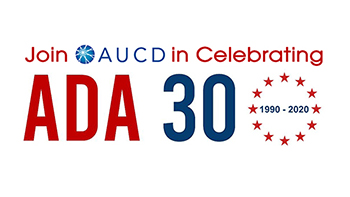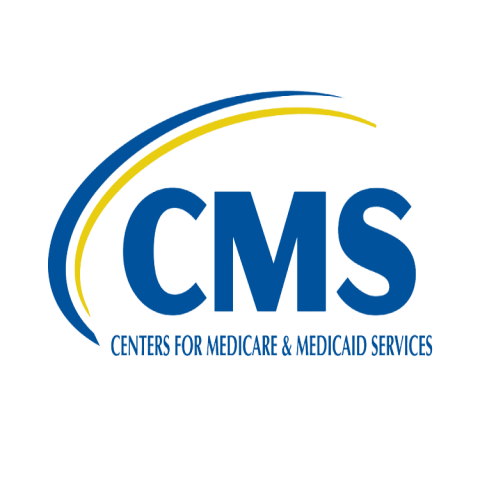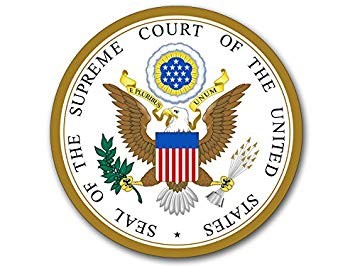|
 Civil and Human Rights Civil and Human Rights
The disability community's connections to and intersection with all parts of the civil and human rights community are essential to who we are and lead us to stand together and speak out against injustice and inequality in all its forms.
Plain Language:
- Racism hurts our country. People are protesting and speaking out for change.
What this means to you:
- We all have a role in addressing racism and making needed changes. The injustice and inequality experienced by black Americans is a human rights, civil rights, and disability rights issue. The disability community will work for change.
Action steps:
- Follow Proposed Bills and Policy:
-
|
Bill
|
Status
|
Summary
|
|
|
Justice in Policing Act of 2020
|
Passed the House June 25, 2020
|
Bans chokeholds, establish a national database to track police misconduct and prohibit certain no-knock warrants, among a range of steps
|
|
|
Executive Order on Safe Policing for Safe Communities
|
Signed on June 16, 2020
|
Uses federal grant money to encourage local departments to take action around a set of national "best practices."
|
|
|
JUSTICE Act (S 3985)
|
Introduced on June 17, 2020
Failed to advance on 6/24
|
Discourages, but does not ban, tactics such as chokeholds and no-knock warrants, requires local law enforcement agencies to report all officer-involved deaths to the FBI and encourages broader use of body-worn cameras for officers.
|
|
- Contact your Congressional delegation by email or call the Capitol Switchboard at: (202) 224-3121 (voice) or (202) 224-3091(tty) and advocate for justice.
- Sample Script:
"Hi, my name is _____ and I am calling because _______ (personal impact of police brutality)______. I am from _______(university program name/city and state). I have experience with ___________. I care about____________."
Hi, my name is Jordan Kerr and I am a Public Health Specialist and resident of PG County. The recent recorded murder of George Floyd has not only caused tremendous concern but shed light on the systemic issue of police brutality in America. Myself and others in my field are concerned about the history of racial profiling, excessive force, and abuse of power that has been present in a number of fatal interactions with law enforcement. Studies have shown that Black residents are more likely to be stopped by police than white or Hispanic residents and police are twice as likely to threaten or use force against black residents than white or Hispanic residents. These instances are more frequently being recorded, leading to a norm of distrust between police and the community they serve and a fear of law enforcement. It is because of this that I would like to talk with you about legislation that prohibits lethal force unless necessary and only after required use of reasonable alternatives have been exhausted. The state of unrest in America will only continue until changes are made. It is my hope that you would support policies that will lead to better practices and allow our law enforcement to effectively serve our communities."
 COVID-19 COVID-19
Congress and the administration are responding to the COVID-19 crisis in a variety of ways. It is important that the various relief and safety efforts meet the needs of people with disabilities. Your education to members of Congress about the impact on people with disabilities is important during this time.
Congressional Efforts:
|
Bill
|
Status
|
What it means for People with Disabilities
|
|
Coronavirus Preparedness and Response Supplemental Appropriations Act
|
Became Law on
March 6, 2020
|
The bill requires that agencies "pay back" money that was moved from programs like NIDILRR and emergency heat funding when the crisis began.
|
|
Families First Coronavirus
Response Act
|
Became law on March 19, 2020
|
Free coronavirus testing for everyone who needs a test, including the uninsured. Increased paid leave. Enhanced Unemployment Insurance to people unable to work. Increased funding for food security programs.
|
|
Coronavirus Aid, Relief, and Economic Security Act (or CARES Act)
|
Became law on March 27, 2020
|
- Allows state Medicaid programs to pay for direct support professionals to assist disabled individuals in the hospital
- $13.5 billion available for formula grants to States, which will then distribute 90 percent of funds to local educational agencies to meet needs of all students, including students with disabilities
- $85 million for Centers for Independent Living
- $50 million for Aging and Disability Resource Centers
- Extension of Money Follows the Person and Spousal Impoverishment through November 30, 2020
- Waives nutrition requirements for Older Americans Act (OAA) meal programs during the public health emergency related to COVID-19 to ensure seniors can get meals in case certain food options are not available
|
|
Paycheck Protection Program and Heath Care Enhancement Act
|
Became law on April 24, 2020
|
- $321 billion to refill the CARES Act's Paycheck Protection Program (PPP)
- $60 billion in economic disaster loans for small businesses
- $75 billion to help hospitals treat COVID-19 patients and address drops in revenue
- $25 billion for states to increase testing capabilities
|
|
Health and Economic Recovery Omnibus Emergency Solutions Act (HEROES Act)
|
Passed the House on May 15, 2020
|
- Home and Community Based Services investment to support wages, services, leave, and related critical needs to support access to home and community- based services.
- $10,000,000 for Developmental Disabilities Act Programs
- $10 Billion additional for nutrition services and increased flexibility to support greater access for people with disabilities
- Requirement for CDC Field Study about to Health Inequities
- Specifically: "the impact of disability status on health care access and disease outcomes"
|
|
The Paycheck Protection Program Flexibility Act of 2020
|
Became law Friday June 4, 2020
|
· Extends the time businesses have to spend the funds from an eight-week period to 24 weeks.
|
What happened last week:
Senators continue to work introducing legislation that indicates their priorities to be included in the next package. Senate Majority Leader Mitch McConnell has said Republicans will reassess aid needs next month and draft a bill if necessary, presumably after the Senate's two-week recess following July 4th
Plain Language:
- Congress is working on bills to support people during COVID-19. They need to hear from you about the needs of people with disabilities.
What this means to you:
- More than 105 million Americans - or about 4 in 10 adults - are at greater risk if infected with the coronavirus (COVID-19), including older adults, people with disabilities and those with underlying health conditions. The front-line workers and family caregivers who support these individuals also face increased risks, requiring additional resources and supports to protect their health and well-being.
Action steps:
-
Read AUCD's resources to continue your work during the pandemic
-
-
-
-
You can use this easy tool to find your members of Congress
Rationing of Care
The Office for Civil Rights (OCR) at the U.S Department of Health and Human Services (HHS) has resolved a complaint filed against the state of Tennessee after it updated its crisis standards of care ("CSC") plan to ensure that the criteria does not discriminate against persons based on disability or age. This is OCR's fourth resolution with a state regarding disability discrimination concerns during COVID-19.
Plain Language:
- If you are experiencing discrimination know that there is guidance and help to advocate.
What this means to you:
- Stakeholders can use this in working with states and medical professionals in developing fair and non-discriminatory plans.
Action steps:
 Facemask and ADA Facemask and ADA
The Department of Justice issued an alert warning that a card circulating online is falsely claiming its holder is lawfully exempt from wearing a mask under the Americans with Disabilities Act (ADA). Do not to rely on information included on the card.
Plain Language:
- Cards printed from the internt that say you do not have to wear a mask becasue of the ADA are not real.
What this means to you:
- The CDC continues to recommend wearing a mask in public.
Action steps:

Patient Protection and Affordable Care Enhancement Act
The Patient Protection and Affordable Care Enhancement Act (H.R. 1425) was introduced in the House on June 24, 2020. The goal of the legislation is to improve affordability of health care under the Affordable Care Act, including:
- Expand tax credits to lower premiums on plans bought through the ACA
- Press states that have not yet done so to expand Medicaid
- Require that Medicaid and CHIP cover new moms for 1 year postpartum
- Crack down on junk plans
AUCD and the disability community are supporters of many of these important efforts. We are aware that the bill also includes policies intended to offset its costs that are based on discriminatory quality-adjusted life years (QALYs) and similar metrics based on averages. If this bill moves forward, the disability community will need to educate members on the need for advocacy to remove provisions that would weaken the Affordable Care Act's existing protections for people with disabilities.
Plain Language:
- Congress is working on a bill to improve affordability of health care under the Affordable Care Act. They need to hear from you about why people with disabilities are opposed to referencing quality-adjusted life years (QALYs) used in other countries.
What this means to you:
- The Patient Protection and Affordable Care Enhancement Act may have provisions that you support and that benefit people with disabilities. As it is currently written there is reason to be concerned that it could increase discrimination.
Action steps:
- ·Read more about the bill
Summary of Provisions
Section-by-Section Summary
Full Text of the Bill
- Learn more about discrimination and QALY
What is a QALY?
Quality-Adjusted Life Years and the Devaluation of Life with Disability
Watch video about the issue
- Share your thoughts with your members of the House of Representatives
Email or call the Capitol Switchboard at: (202) 224-3121 (voice) or (202) 224-3091(tty) and ask to be connected to your member.
You can use this easy tool to find your members of Congress
 
Supreme Court
The administration filed a legal brief urging the Supreme Court to strike down the entire Affordable Care Act (ObamaCare). This is the continuation of the appeals process related to the case, Texas v US, where the plaintiffs challenged the constitutionality of the individual mandate in the Affordable Care Act after Congress enacted the Tax Cuts and Jobs Act of 2017, which "zeroed out" the individual mandate penalty beginning in 2019. Without the penalty, the plaintiffs argue that the mandate is unconstitutional. The suit aims to overturn basic consumer protections that were included in the ACA - such as the provision that allows children under 26 years old to be covered under their parents' plans, the prohibition on lifetime and yearly dollar limits on coverage, and free preventive care. These protections apply to nearly 180 million people who get health insurance through their employer or purchase it on their own in the individual market. This decision has little direct immediate impact, as it will almost certainly be appealed by Democratic-controlled states defending the ACA.
Plain Language:
- A part of the Affordable Care Act that says everyone has to have healthcare is being questioned if it is allowed. More fighting about this will happen.
What this means to you:
- The Administration is pushing action that could still lead to millions of Americans losing their health care.
Action Steps:
- Use this advocacy guide to amplify your voice.
- Read the Amicus Brief AUCD supports. (Amicus briefs are legal documents filed in court cases by interested members of the community. The briefs advise the court of relevant, additional information or arguments that the court might wish to consider which can have significant impact on judicial decision-making.)
 Campaign 2020 Campaign 2020
Vice President Joe Biden released a disability policy plan, The Biden Plan for Full Participation and Equality for People with Disabilities, as well as a disability plan during COVID-19, Supporting People with Disabilities During the Coronavirus (COVID-19) Pandemic.
President Donald Trump has published a list of current accomplishments by the issues.
Action Step:
AUCD Policy Talk
As we celebrate the anniversary of #Olmstead on June 22nd, Wanda Felty, Community Leadership & Advocacy Coordinator for Oklahoma LEND examines the state of OK since #Olmstead in this week's #AUCDPolicyTalk. #WhatWeNeed
Action Steps:
 Love Policy? We do too! Love Policy? We do too!
Check out AUCD's new policy resource, a one-page fact sheet to help explain AUCD's policy efforts, and engage with us today!

Tuesdays With Liz
In recognition of Pride Month, we revisit Liz's chat with Mara Keisling, founding Executive Director of the National Center for Transgender Equality, about the intersection between trans rights and disability rights.
Visit https://transequality.org/ to learn more about the National Center for Transgender Equality.
https://youtu.be/FXeDrJ6jTl
|
